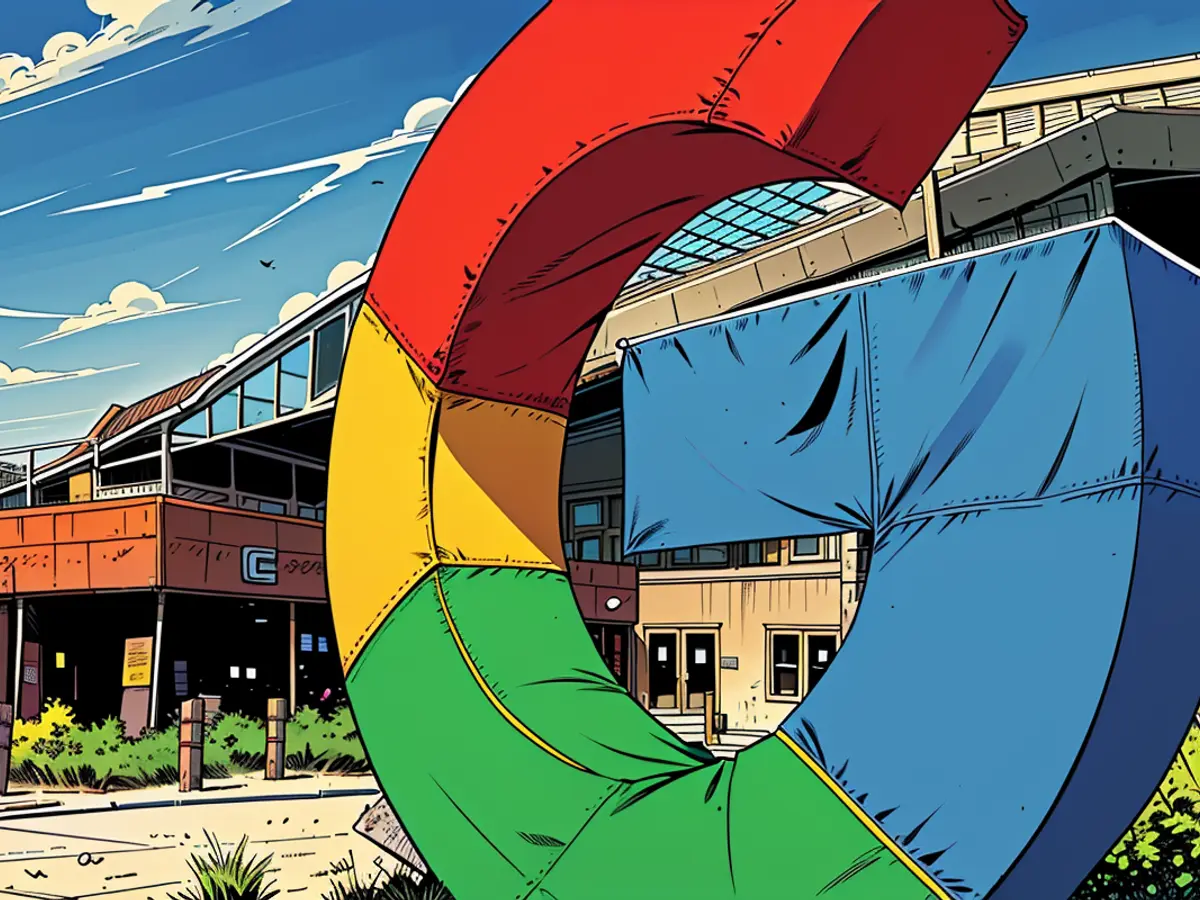- Google loses US competition lawsuit - consequences still unclear
Google suffers a significant defeat against U.S. antitrust regulators. A judge in Washington ruled that the company has a monopoly in internet search and maintained it through unfair means. Google plans to appeal the decision.
The implications of Monday's court ruling for Google, internet users, and competition remain uncertain. Another proceeding on potential consequences is expected. An appeal could take years.
Google pays billions for preferences
The case centered around Google's billion-dollar deals securing its place as the default search engine on browsers like Safari on Apple's iPhones and Firefox.
Judge Amit Mehta initially concluded that Google has a monopoly in the search engine market, citing its ability to raise prices for advertisers without fear of repercussions. The deals that made Google the default search engine on iPhones and other browsers solidified this market position, which Mehta ruled was illegal for a monopolist.
European regulations not a model
What the U.S. Department of Justice, as the plaintiff, will demand in terms of remedies is still unknown. Experts also disagree on what effective measures to increase competition in the search engine market could look like.
In the European Union, users have been asked since March to choose their preferred search engine from a list. Many still choose Google due to positive experiences, so the additional step initially changes little in market shares.
Apple and Firefox could lose billions
It's also unclear if the court can order Apple and Mozilla to change their procedures for selecting a default search engine, as they are not part of the case. The judge repeatedly noted Google's superiority, citing Apple executive Eddy Cue's statement that Microsoft couldn't buy the default status for its Bing search engine on Apple devices for any amount.
A potential consequence could be Google maintaining its market position without securing it through payments to other platforms. While Apple can afford to lose Google's billions, they are a central revenue source for Firefox developers.
Users stick with defaults
In the past, users could change their default search engine, but many stick with the preset option. Judge Mehta concluded this gave rivals no chance to gain a foothold in web browsers.
Kamyl Bazbaz of Google competitor DuckDuckGo told industry newsletter "Platformer" that a possible remedy could be periodically asking users if they want to try a different search engine. The court could also order Google to create new interfaces for rivals or prevent it from asking users who switched to return.
Google: We just make the best search engine
The internet giant countered that users choose Google due to satisfaction with its search results. Firefox once switched to Yahoo as its default but returned to Google after two years.
Even after the verdict, the corporation emphasized that the judge had repeatedly acknowledged Google's search engine as the best. Therefore, they would appeal the decision and continue developing products that people find useful.
The lawsuit was filed during Donald Trump's presidency. The administration of his successor, Joe Biden, pursued the case. "The victory over Google is a historic victory for the American people," rejoiced Attorney General Merrick Garland after the ruling. It demonstrates that no company is above the law.
Google's appeal against the antitrust ruling could prolong the uncertainty surrounding its future in the search engine market. Despite the court's conclusion that Google's deals securing its default status on browsers were illegal for a monopolist, the corporation maintains that users choose Google due to satisfaction with its search results.








